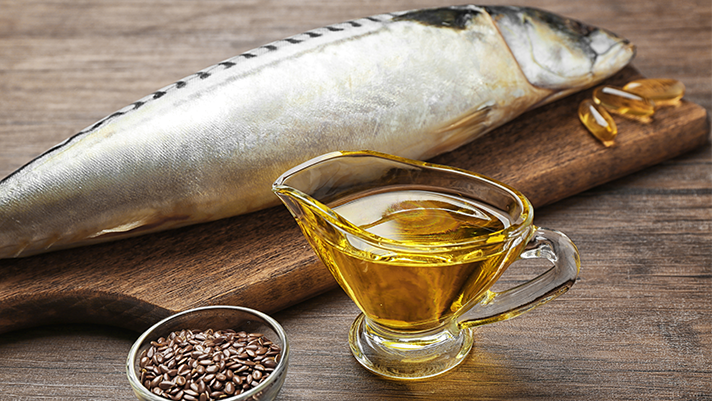Read more articles about omega-3
Both omega-3 and omega-6 are important for our health. But while we get more than enough omega-6 from our diet, it can be a challenge to get enough omega-3. This creates an imbalance that can lead to unfortunate side effects.
An abundance of omega-6
Omega-6 is particularly important for normal growth and development in children. We get this fatty acid from vegetable products such as soya beans, corn oil, sunflower oil, mayonnaise and margarine. It is also found in cereals, nuts and pumpkin seeds. Our western diet is rich in these foods and most of our intake is hidden in products such as biscuits, potato chips, ready-made meals, instant powder soups, etc.
Omega-3 is scarce
Omega-3 is particularly important for the brain, heart and eyesight. We mainly get this fatty acid from oily fish such as salmon, trout, sardines, mackerel, anchovy and herring. The problem is that we don’t eat enough of these to ensure a sufficiently high intake.
There is no question that we need both omega-3 and omega-6. However, the fact is that they compete for the same absorption receptors in the body. When we get large amounts of omega-6 and small amounts of omega-3, this means the omega-6 fatty acids ´win the competition´ for the same receptors. Many people are thus rightly concerned about the balance between these two groups of fatty acids. Ideally, you should increase your omega-3 intake.
Health benefits
What are the effects of an omega-3 rich diet? Omega-3 helps maintain normal functions in the heart and brain and preserves good vision. These are health benefits you can enjoy well into your senior years and which you can help to influence through your diet.
Eat more fish
The NHS recommends eating fish at least twice a week. If this is difficult for you, then products such as Möller’s Cod Liver Oil or Möller’s Omega-3 capsules can help.

